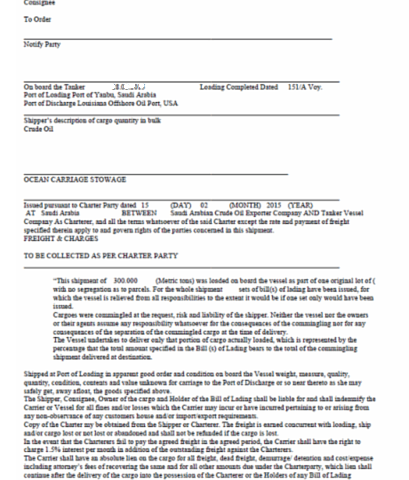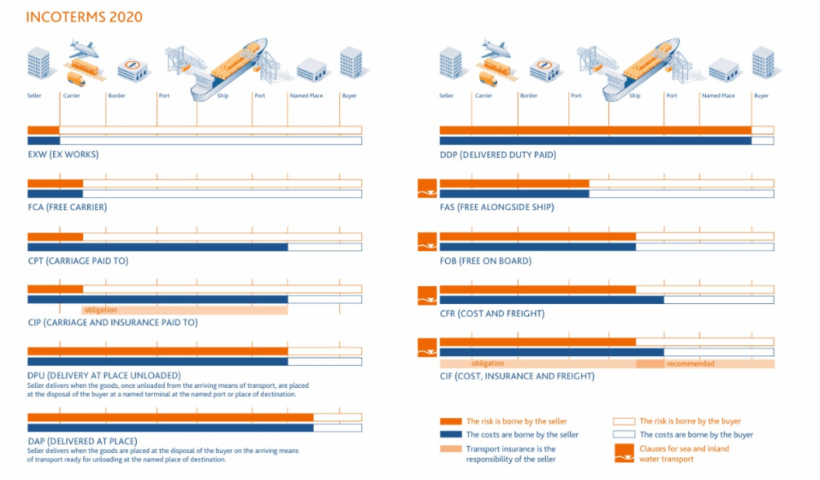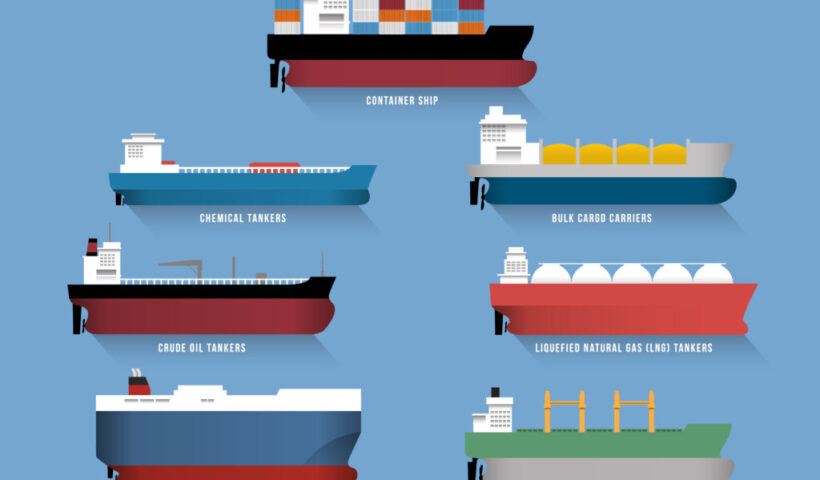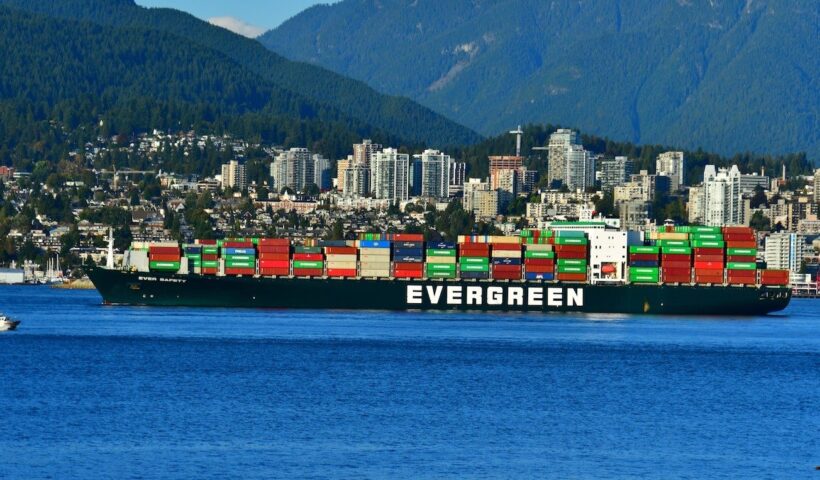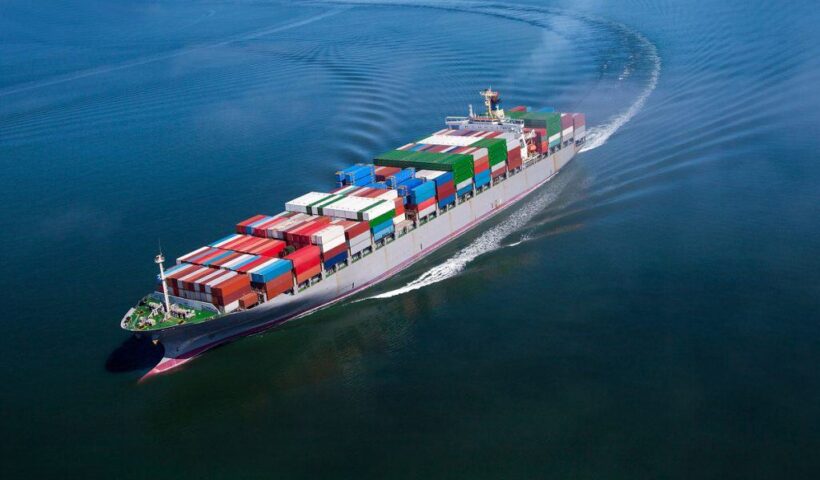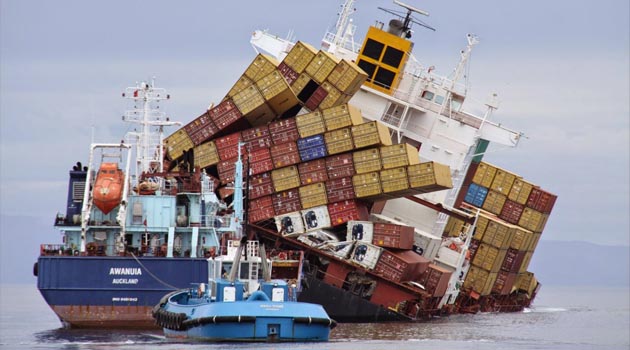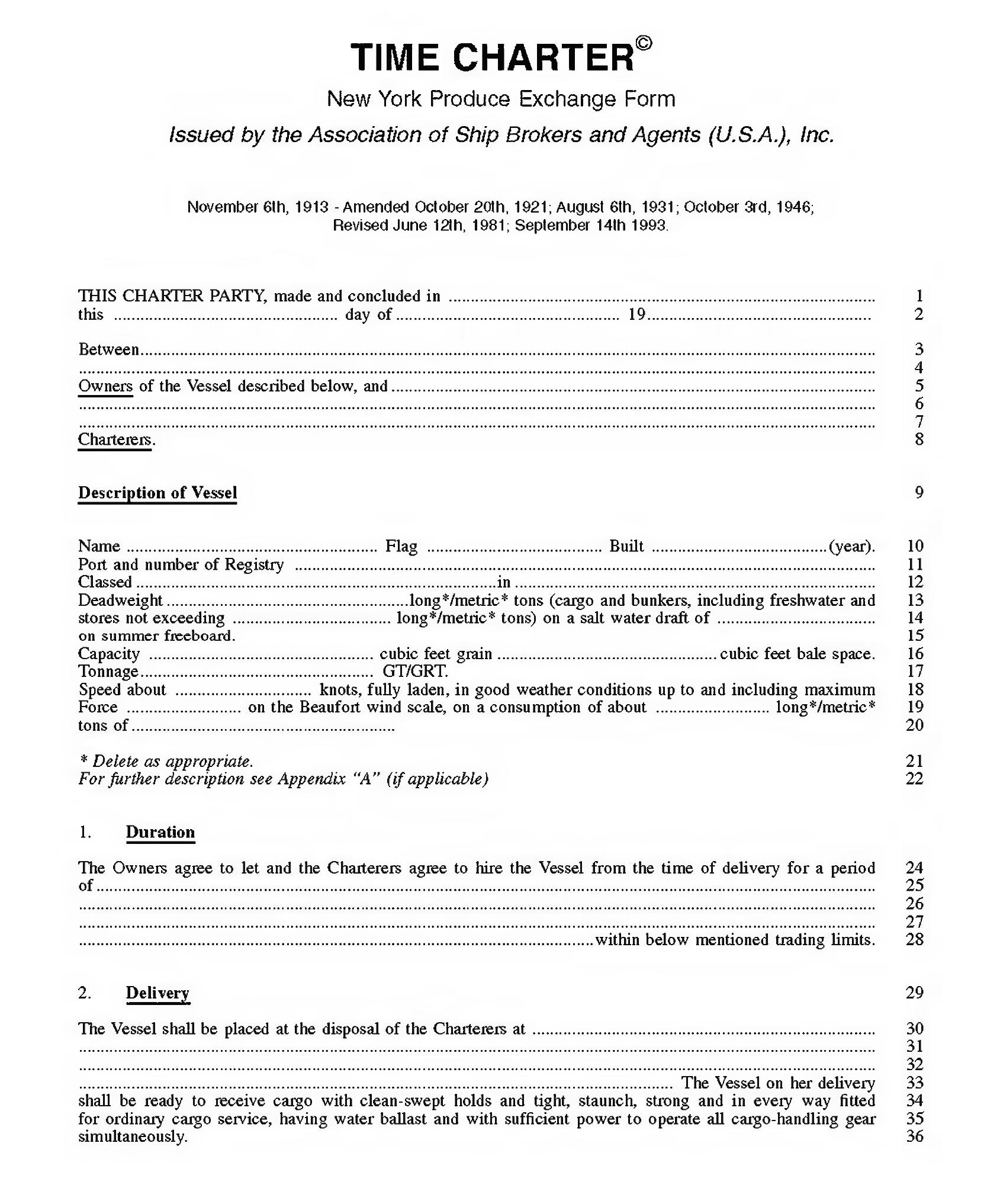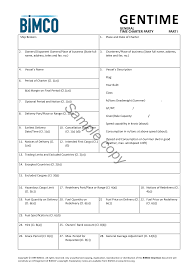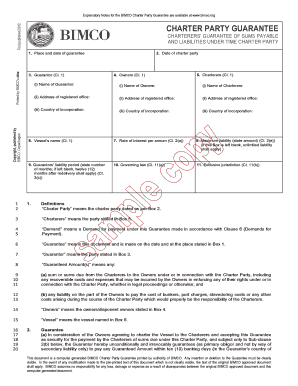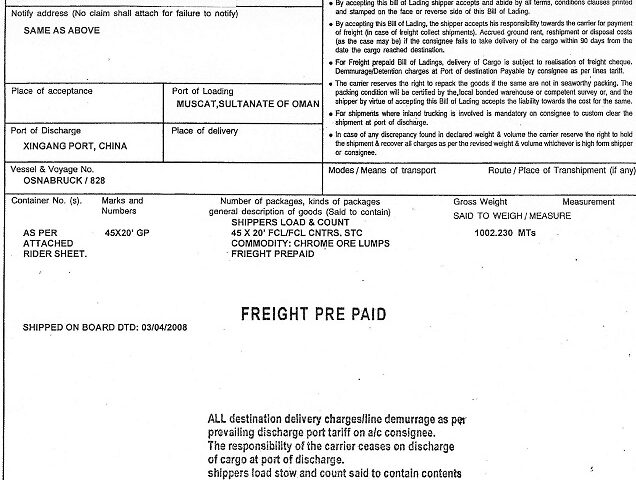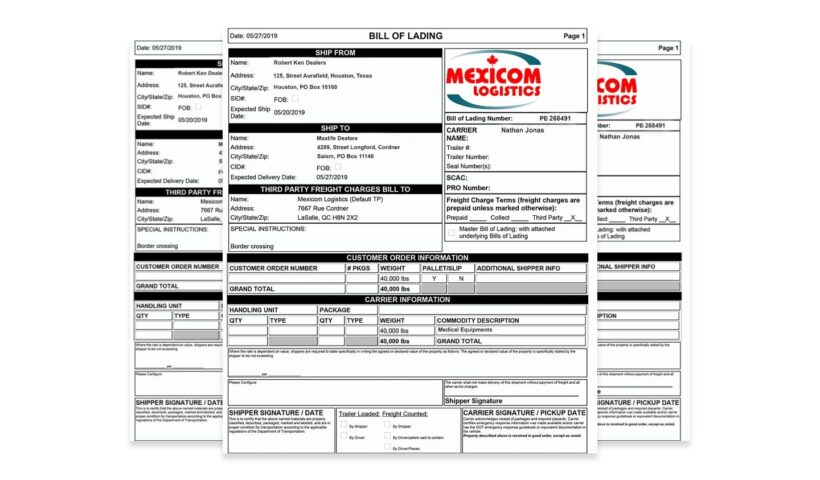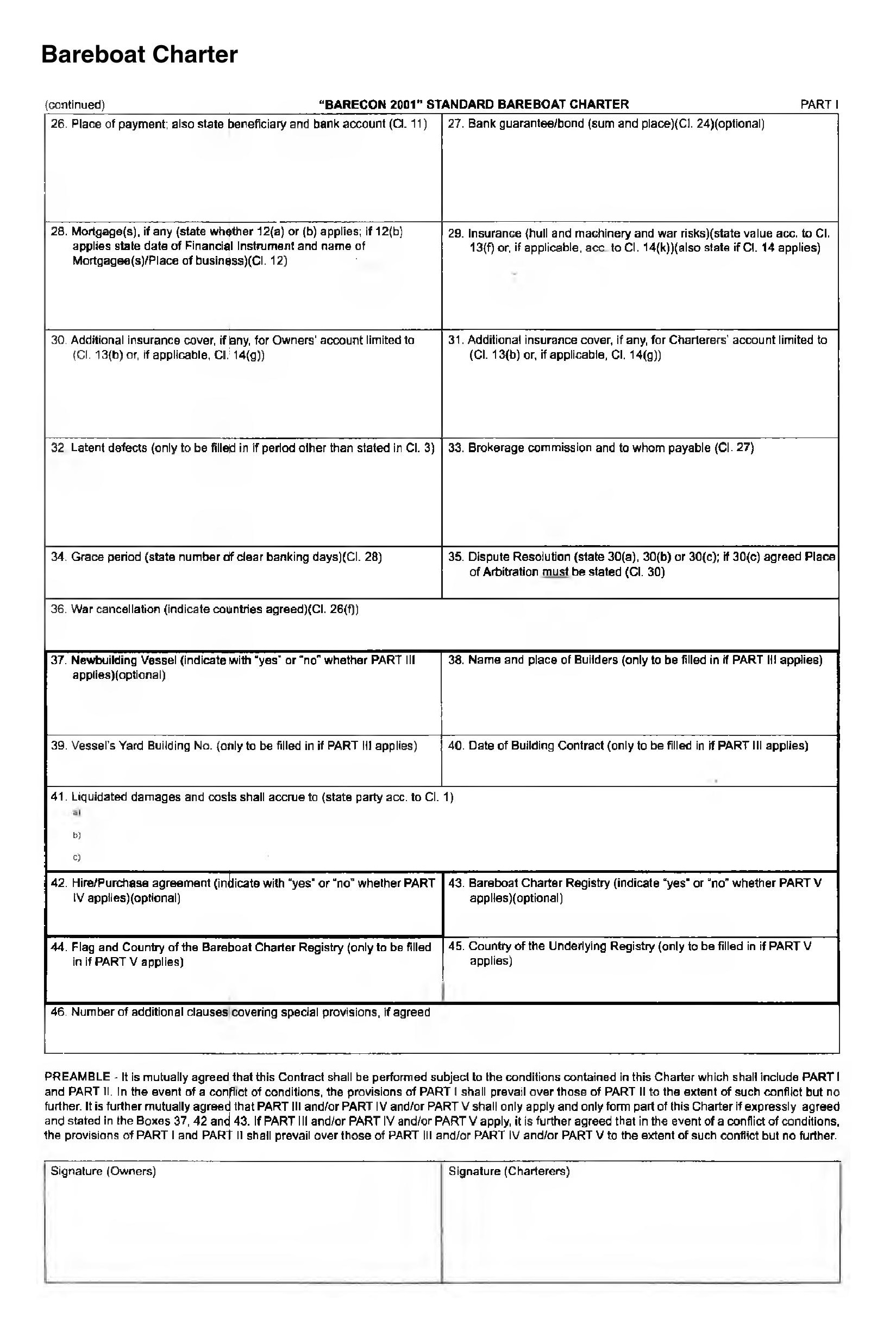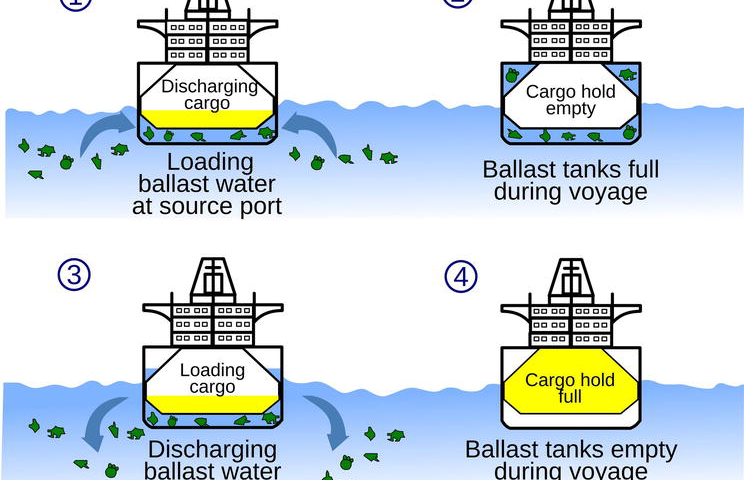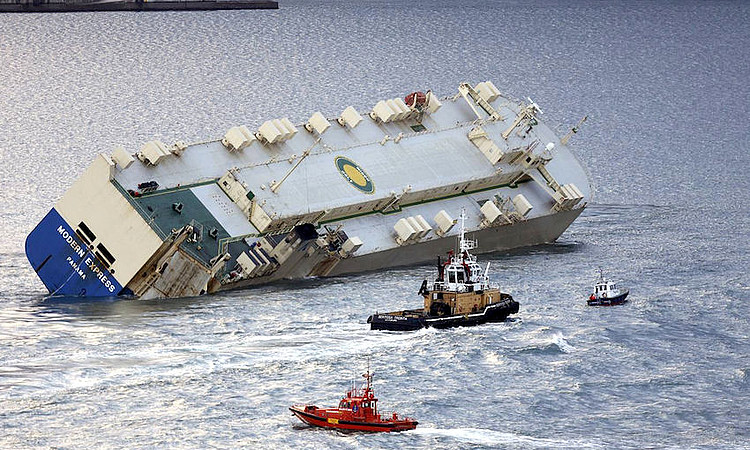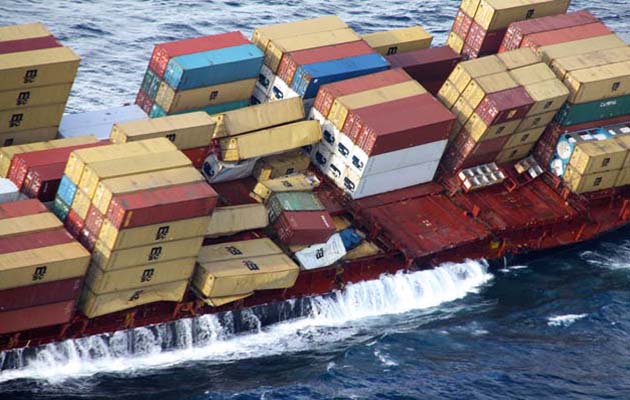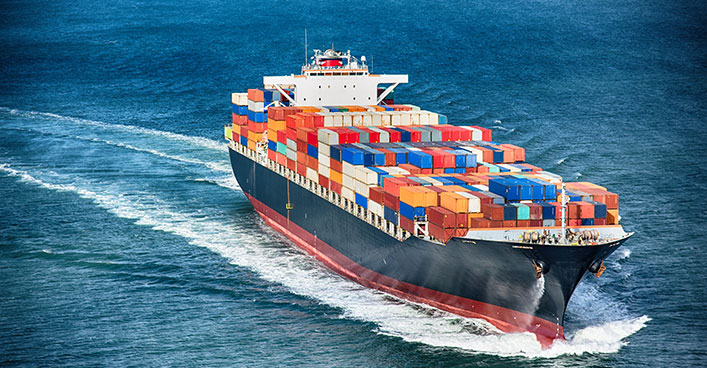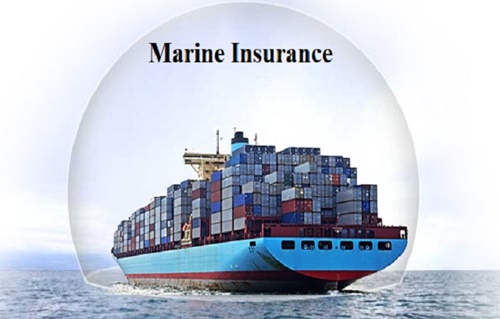Oceanic Odyssey: Sailing the Seas of Evolution
View More Oceanic Odyssey: Navigating the Ever-Evolving Global Maritime CanvasCategory: maritime law
what is the meaning of Charter- party in maritime law and shipping law?
Documents containing all the terms and conditions of the contract betweena shipowner and a charterer. Charter- parties, or charters as they are oftenreferred to, fall…
View More what is the meaning of Charter- party in maritime law and shipping law? Charter- party bills of lading, waybills and cargo
receipts
A variety of documents arise from the chartering of a ship, commencing with
the document containing the contract itself, the charter- party. The type
of charter- party and its content depend on whether it is a time charter or
voyage charter and the type of commodity to be carried
receipts
what is the meaning Charter freight terms in maritime law and shipping law
Voyage charter freight, more often than not, consists of the ocean freight or
sea freight only. This is because cargoes of sufficient size to warrant chartering
a ship (charterable quantity) are larger than liner cargoes, normally
sufficient to fill the ship; the loading and discharging berths are very often
controlled by cargo owners or used frequently by them. Freight on this basis
is said to be on a free in and out basis.
what is the meaning of Charter documentation in maritime law and shipping law
This section examines the documentation associated with charters from the
perspective of the charterer. There are significant differences between time
charters and voyage charters in respect of the functions of the charterer and
hence of some of the documents involved.
what is the meaning Carrier in maritime law and shipping law
Party who enters into a contract with a charterer or shipper, as the case may
be, for the carriage of cargo.
Cargo types in maritime law and shipping law
Cargoes fall into two basic categories: liquid and non- liquid, termed wet cargoes
and dry cargoes. Each type is carried in different ways for different reasons.
Cancellation of a charter in maritime law and shipping law
Repudiation of the contract, most often by the voyage charterer or time
charterer when the ship misses her cancelling date, or by the time charterer
when the ship is off hire for longer than the period stipulated in the
charter- party.
Every charter has a date by which the shipowner must tender notice of
readiness to the charterer that the ship has arrived at the port of loading and
is ready to load. This date is known as the cancelling date. The charterer
may have the option of cancelling the charter if the ship arrives after this date.
what is the meaning Bunker surcharge in maritime law and shipping law?
The bunker surcharge is a surcharge on the freight reflecting fluctuations in
the price of fuel, aimed at ensuring that shipping lines are not out of pocket
as a result of such fluctuations. The need for this surcharge arose suddenly
in 1974 when oil prices quadrupled. Fuel then became a significant element
in the shipowner’s costs (to a lesser extent it still is, although, because of the
high prices reached by bunker prices, shipowners have striven to find ways of
reducing consumption).
what is the meaning Bulk carriers in maritime law and shipping law?
Single deck ships designed to carry homogeneous unpacked dry cargoes such
as sugar or cereals. Such ships have large hatchways to facilitate cargo handling,
hopper sides and wing tanks. The latter are used either for the carriage
of grain, other bulk cargoes or water ballast. Bulk carriers, or bulkers as they
are sometimes called, are built in a wide range of sizes and are generally gearless,
although smaller vessels may have their own gear.
A variety of specialised types of bulk carrier have evolved, and a number are
mentioned here.
what is the meaning Breakbulk liner ancillary charges in maritime law and shipping law?
In this category fall the extra charges levied by shipping lines and liner conferences
which do not come under the headings of temporary surcharges. They
are many and varied and reflect, for example, the chosen voyage, the type of
cargo and cargo handling.
what is the meaning Both to blame collision clause in maritime law and shipping law?
Clause in a bill of lading or charter- party which stipulates that, in the event of
a collision between two ships where both are at fault, the owners of the cargo
must indemnify the carrying ship against any amount paid by the carrying ship
to the non- carrying ship for damage to that cargo. This clause arises because,
under American law, a cargo owner is not able to make any recovery from
the carrier for damage resulting from negligent navigation but may instead
sue the non- carrying ship which, in turn, seeks recovery from the carrying
ship in proportion to its fault. This would render a carrier indirectly liable for
a loss for which he is not directly liable to the cargo owner. The clause has,
however, been held to be invalid in the American courts when incorporated
into a contract with a common carrier.
what is the meaning Bookings in maritime law and shipping law?
Reservations made by a shipper or his agent with a carrier for the carriage of
certain defined goods from a place of loading to a place of discharging. To
reserve space in this way is to book space. This can be done in different ways,
including online. The document containing the terms and conditions of the
contract between a shipper and a shipping line is called the booking note or
liner booking note. This document is superseded by the bill of lading when
this is established.
what is the meaning BIMCO (Baltic and International Maritime Council)?
BIMCO is a shipping association providing a wide range of services to its
global membership of stakeholders who have vested interests in the shipping
industry, including shipowners, operators, managers, brokers and agents.
The association’s main objective is to facilitate the commercial operations
of its membership by means of developing standard contracts and clauses and
providing quality information, advice and education.
what is the meaning BIMCO time charter- parties in maritime law and international law
BIMCO (the Baltic and International Maritime Council) publishes a number of standard time charter- parties covering a wide variety of situations. These are listed here:
View More what is the meaning BIMCO time charter- parties in maritime law and international lawwhat is the meaning BIMCO sundry documents in maritime law and international law
BIMCO (the Baltic and International Maritime Council) publishes a number of standard forms for use in a variety of situations. These are listed here:
View More what is the meaning BIMCO sundry documents in maritime law and international lawwhat is BIMCO sundry clauses terms
BIMCO (the Baltic and International Maritime Council) publish a widerange of clauses:Arbitration ClausesAverage Bond Clause 2007BIMCHEMTIME Vetting and Inspection ClauseBIMCO/IPTA Vegoil Tank Pre- wash ClauseBoth-…
View More what is BIMCO sundry clauses termswhat is the meaning Bill of lading – common clauses in maritime law and international law
Most bills of lading are printed on both sides. On the face (front) are boxes
or spaces into which are entered all the information necessary to identify the
particular cargo, the journey, the names and addresses of cargo interests and,
possibly, other details, such as freight.
what is the meaning Bill of Lading in maritime law and international law
Document issued by a shipowner to a shipper of goods. It serves three purposes:
a receipt for the goods, evidence of the contract of carriage and document
of title. It contains full details of the cargo (see below).
Depending on the particular requirements of cargo interests, a number
of originals – often three – and a number of non- negotiable copies are
issued. One original bill of lading is surrendered to the carrying ship
at the discharge port or destination in exchange for the goods. Such a
bill of lading is then said to be accomplished. Once this is done, any
other original bills become non- negotiable. The copy bills of lading
are retained for reference by various parties including the shipper and
consignee.
what is the meaning Berth in maritime law and international law
Place in a port alongside a quay where a ship loads (loading berth) or discharges
(discharging berth) cargo or, in the case of a lay- by berth, waits
until a loading or discharging berth is available. This term is also frequently
used to signify a place alongside a quay, each of which is capable of accommodating
only one ship at a time.
what is the meaning Bareboat Charter in maritime law and international law
The hiring or leasing of a ship for a period of time during which the shipowner
provides only the ship while the charterer provides the crew together with all
stores and bunkers and pays all operating costs. This type of charter is favoured
by persons or companies who wish to own a ship for investment purposes but
who do not have the desire or expertise to operate the ship. Similarly, it is
favoured by persons or companies who have a particular requirement for a
ship and the expertise with which to operate one but without the wish or
ability to purchase. Typical of this category are shipping lines who may wish
to take a ship on for a period of many years but who do not wish to make a
large capital investment by buying one.
what is the meaning Baltic Exchange in maritime law and international law
The Baltic Exchange is a membership organisation at the heart of the global
maritime marketplace. It provides independent daily shipping market information,
maintains professional shipbroking standards and resolves disputes.
Baltic Exchange members are at the heart of world trade, arranging for
the ocean transportation of industrial bulk commodities from producer to
end user. The bulk freight market relies on the co- operation of shipbrokers,
shipowners and charterers to ensure the free flow of trade.
Baltic Exchange shipbrokers undertake to abide by a code of business
conduct based on the motto “Our Word Our Bond” and those who breach
the code are disciplined or expelled.
what is the meaning Ballast in maritime law and international law
Heavy weight, often sea water, which gives a ship stability and improves
handling when she is at sea. This may replace the cargo when the ship is not
loaded or may be pumped in during a voyage to replace fuel and water consumed.
Such a ship is said to be steaming in ballast or ballasting. A ballast
tank is a general term given to any tank or compartment in a ship which is
used for ballast when the ship is not carrying cargo.
About LAW OF SALVAGE
Geoffrey Brice QC in his book Maritime Law of Salvage, defines salvage as follows:
‘In English law the right to salvage arises when a person, acting as a volunteer,
preserves or contributes to preserving at sea any vessel, cargo, freight or other recognised
subject of salvage in danger.’
The definition incorporates the four essential ingredients of salvage:
• to be a volunteer;
• to preserve or contribute to preserving;
• a recognized subject of salvage;
• which is in danger.
LAW OF WRECKS
n the UK Merchant Shipping Act 1894 ‘wreck’ is defined as including ‘. . . jetsam,
flotsam, lagan, and derelict in or on the shores of the sea or any tidal waters’. ‘Jetsam’
is goods thrown into the sea to lighten the vessel. ‘Flotsam’ is goods which float
when a ship sinks. ‘Lagan’ refers to goods from a sunken ship heavier than water
which has been buoyed to prevent it from sinking. ‘Derelict’ includes the ship itself
if it is not in the possession or control of its owner.
LAW OF GENERAL AVERAGE
If the common adventure consisting of the ship and the cargo is exposed to a peril at sea, the losses and expenses which are intentionally incurred to save the common adventure from the peril shall be shared by the saved interests in proportion to their values.
View More LAW OF GENERAL AVERAGEABOUT ENFORCEMENT OF MARITIME CLAIMS
In order to describe the scope of this Chapter it is necessary to clarify what is
meant by ‘enforcement of maritime claims’. In civil law, the term ‘enforcement’
is normally used in connection with judgments and the enforcement of a judgment
on a ship is possible whatever the nature, maritime or not, of the claim to
which the judgment refers.
LIMITATION OF LIABILITY FOR MARITIME CLAIMS
Limitation of liability for maritime claims is a legal concept which allows the
shipowner to limit his financial exposure for maritime claims up to a maximum
sum regardless of the actual amount of the claims being brought against him. The
concept has a long history and, although there is controversy as to the specific
time when it first appeared, it seems that the first real recognition of a shipowner’s
right of limitation of liability is found in the Tavole Amalfitane, wherefrom it
later spread to continental Europe.
THE LAW OF MARINE INSURANCE
The term marine insurance (Fr. assurance maritime, It. assicurazioni maritime,
Germ. Seeversicherung) refers to the insurance of vessels; cargoes; shipowner’s,
shiprepairer’s, and other marine liabilities; and of the various other moveable property
and associated interests exposed to the risks incidental to marine transport.
It protects the insured against damage, loss, and liability arising from exposure of
a vessel, goods, or any moveable property to maritime perils; meaning the perils
consequent on, or incidental to, navigation at sea. A contract of marine insurance
may cover mixed sea and land, or inland water, risks.


